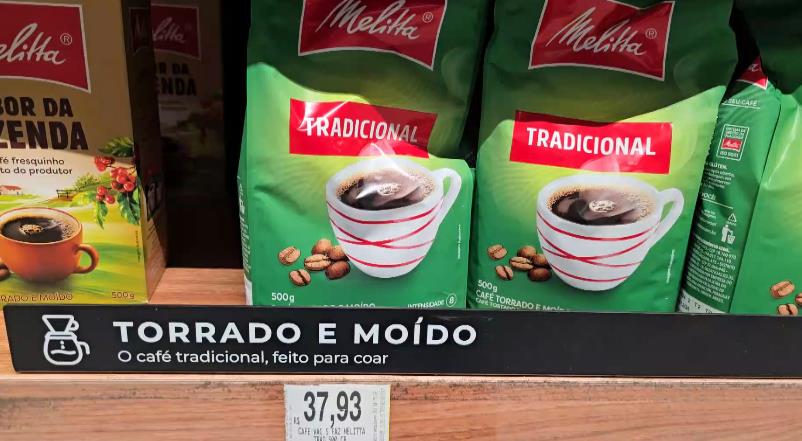
Brazil is the world's second-largest coffee consumer after the United States, with the average Brazilian drinking over 1,400 cups of coffee each year.
But due to falling domestic production and other factors, coffee prices in Brazil have surged, pushing up inflation - and even giving rise to fake coffee products on the market.
Lei Xiangping reports.

Ground coffee on store shelves in Brazil [Photo: China Media Group/Lei Xiangping]
Coffee prices in Brazil have climbed steeply in recent years. According to a recent report from the Brazilian Coffee Industry Association, prices jumped nearly 40% in 2024 alone. In Sao Paulo, Brazil's largest city, many consumers say cheap coffee is becoming a thing of the past.
"I subscribe to a monthly coffee delivery. The price has definitely gone up a lot. I haven't changed how much I buy yet, but if it gets more expensive, I'll have to cut back."
"Coffee is really expensive now. It used to cost five or six reais—about one US dollar—for a small cup. Now, that price doesn't exist anymore. You need to pay at least 12 reais, maybe more, depending on the place."
Data from Brazil's national statistics agency shows that as of January, ground coffee prices had risen over 50 percent over the previous year. In January alone, prices were up nearly nine percent compared to December. Ground coffee, alongside carrots and tomatoes, was one of the top contributors to food inflation that month.
Brazilian economist Gilberto Braga says people are feeling the impact in everyday life.
In supermarkets across Sao Paulo, a 500-gram bag of ground coffee now sells for around 38 reais, up more than 60% from a year ago. As prices rise, fake coffee products are also making their way into some Brazilian stores. These imitations are made with grains, fruits, flavorings, and colorings to mimic real coffee.
In Minas Gerais, one of Brazil's top coffee-producing states, professional coffee taster Marcos explains how consumers can spot the difference.
"Fake coffee often contains impurities like straw, corn, or even stones. Real coffee is made from high-quality beans and is free of contaminants. You can also tell by the look, smell, and taste. Fake coffee is often very bitter, while real coffee made with genuine beans has a thicker texture, richer flavor, and better aroma."
Coffee is more than just a beverage in Brazil - it's a daily ritual. But with prices soaring nearly 40% over the past year, Brazilians are now paying much more for their favorite drink.
